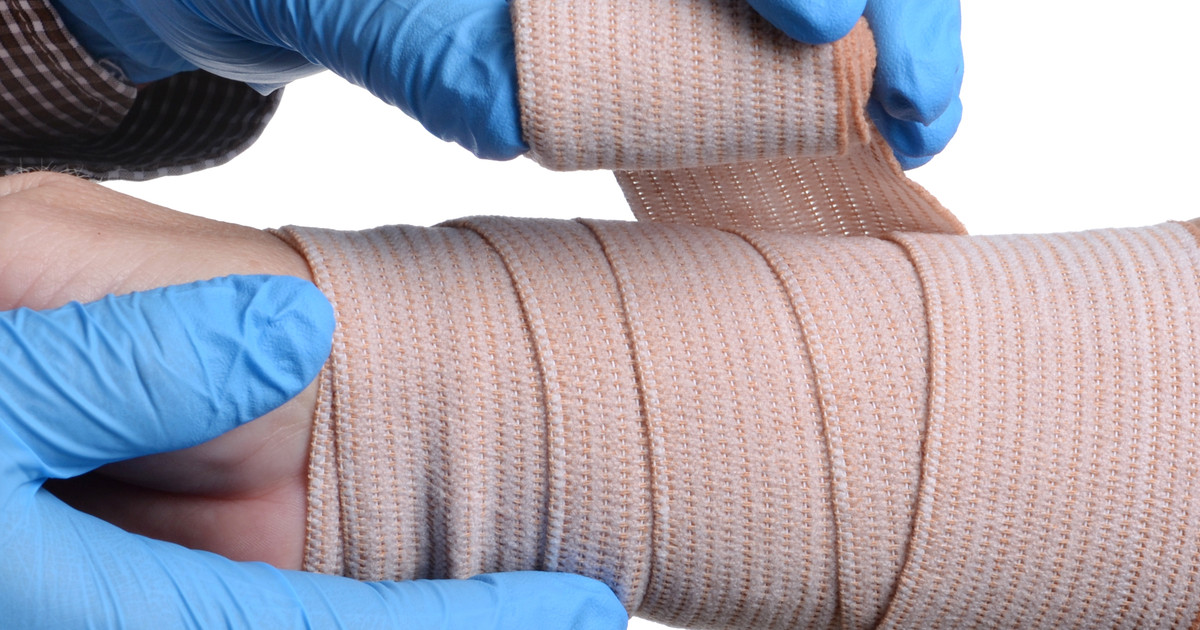Guide To The Causes Of Neutrophilia
Neutrophilia is a condition where there are too many neutrophils circulating in the blood. Between forty and sixty percent of all white blood cells in the body are neutrophils. These blood cells are the first to respond to foreign pathogens that invade the body. A healthy individual typically has between 2500 and 7500 neutrophils per microliter of blood. Neutrophilia has numerous causes that can be classified into three groups. Reactive neutrophilia is an active response to stress or infection. The proliferative group happens when some mechanism causes the bone marrow to overproduce neutrophils. Demargination occurs when specific neutrophils detach from the blood vessel lining and remain circulating in the blood.
Treatment for neutrophilia is available. However, the best options vary depending on the underlying cause. For instance, antibiotics for bacterial infections can be helpful. Medication for leukemia is an option, as is chemotherapy for leukemia. Arthritis treatment, such as medication for arthritis, is essential as well. Overall, patients who want the best neutrophilia treatment must understand the underlying causes first.
Arthritis

Individuals affected by arthritis may develop neutrophilia as a result. Neutrophils are the main type of white blood cell that contributes to the trigger and progression of arthritis. They play this role by releasing molecules that are toxic to other living cells in the body and molecules that mediate responses between macrophages and lymphocytes. Neutrophils in arthritis patients have different cellular properties than those in healthy individuals. Rheumatoid arthritis patients have neutrophils with delayed cellular death and a more sophisticated ability to generate reactive oxygen species, activate and deactivate certain genes, and expression of high-affinity FcY receptors on the cell membrane. These patients also have an immune system that exhibits a defect in their function of neutrophil clearance.
In some autoimmune disorders, neutrophils may be the point of supply of the specific autoantigens or antibodies that propel the underlying mechanisms that result in the autoimmune disease. It is a combination of neutrophil apoptosis delay, clearance defects of neutrophils, and other abnormal properties of neutrophils that can cause an individual with arthritis to also be affected by neutrophilia.
Keep reading to learn more about the causes of neutrophilia now.
Certain Forms Of Leukemia

An individual's neutrophilia can be caused by certain forms of leukemia. Chronic myeloid leukemia is a type of cancer that begins in bone marrow or blood-forming tissues. In the beginning stages of this type of leukemia, the bone marrow produces an excess amount of white blood cells. However, myeloblasts or immature white blood cells begin to accumulate in the patient's bone marrow and blood. This results in a decreased red blood cell and platelet production.
Acute myeloid leukemia also causes neutrophilia, but on a much quicker timeline than its chronic form. Myelofibrosis is a chronic form of leukemia where a patient's bone marrow is replaced by scar tissue, resulting in too many red and white blood cells that do not fully mature and cannot function as healthy cells. Chronic neutrophilic leukemia is a slow-growing cancer of the bone marrow where it makes too many neutrophils. Acute neutrophilic leukemia also causes neutrophilia, but grows at a much faster rate.
Discover more neutrophilia causes now.
Infections

Certain infections, such as those resulting from streptococci, pneumococci, and Escherichia coli bacteria, are known to trigger neutrophilia. Fungal infections known to cause it stem from the fungi known as Candida albicans and coccidiosis immitis. Viral infections that cause this condition include rabies, herpes zoster, varicella, poliomyelitis, and smallpox. Parasites can also cause this condition, but typically less often than viruses and bacteria. An individual who has an abscess, appendicitis, meningitis, and tonsillitis can also experience neutrophilia due to their infection.
Since neutrophils are the first white blood cells in the immune system to reach the site of cellular damage, they can be overproduced in patients when their infection induces such a reactive process in the body. A mild elevation in these blood cells during acute infection is beneficial. However, anything greater can cause the blood to become too thick and produce serious complications.
Get more information on the causes of this condition now.
Removal Of The Spleen

An individual who has undergone removal of their spleen may develop neutrophilia as a complication. The spleen and liver can produce certain blood cells when the bone marrow is not making enough. At the same time, the spleen is a key component in the process of neutrophil removal and destruction of dead and dying neutrophils from the body. There are only three tissues in the body that can perform neutrophil clearance. They are the spleen, liver, and bone marrow. All three of these contribute to the clearance process equally in most healthy individuals.
However, some individuals have had to have their spleen removed due to several conditions and diseases. Without the spleen, the liver and bone marrow are left to perform the job of clearing out neutrophils marked for apoptosis and destruction. The removal of the spleen requires at least a minimally invasive procedure that results in post-operation inflammation. This process causes an increase in the production of neutrophils, with only two-thirds of the healthy neutrophil clearance functionality left. Neutrophilia is often the result of this mechanism.
Uncover more neutrophilia causes now.
Reaction To Certain Medications

An individual's reaction to certain medications can cause them to develop neutrophilia. Beta-adrenergic agonists are bronchodilators, which loosen the muscles lining an individual's airways. These medicines are typically used to treat individuals with bronchitis, asthma, emphysema, and other lung conditions. Neutrophilia is an uncommon adverse side effect of these medications. Corticosteroids exhibit a similar mechanism that causes neutrophilia. However, they are typically used to treat other issues, such as autoimmune disorders, skin conditions, and to prevent organ transplant rejection. Epinephrine is used to treat anaphylaxis, cardiac arrest, and other emergent conditions. This medicine causes the neutrophils embedded in the blood vessel walls to enter and populate the bloodstream, resulting in neutrophilia.
Granulocyte colony-stimulating factor is a medication used in cancer patients who have a low neutrophil count following their treatment. This medication stimulates the production and release of white blood cells from the bone marrow. Thus, it may cause neutrophilia. Heparin can cause neutrophilia because it causes increased activation of neutrophilic components. Lithium, a medication used to treat some psychiatric disorders, is also known to cause neutrophilia. It does this by stimulating the production and release of neutrophils from the bone marrow.
Uncover more causes and risk factors linked to neutrophilia now.
Heart Attack

A major factor in neutrophilia development is acute inflammation. This is a significant reason why a heart attack, which causes acute inflammation, can trigger neutrophilia in quite a few patients. A heart attack, of course, is the result of blood flow to the individual's heart being blocked. In many instances, the blockage is from a buildup of cholesterol, fat, and similar substances. The buildup causes plaque in the coronary arteries. Plaque can also rupture and form a blood clot that also blocks blood flow. Symptoms of a heart attack include chest pain and pressure, tightness in the chest, nausea, heartburn, indigestion, and shortness of breath. Individuals who think they may be having a heart attack need emergency medical attention.
Reveal more information on what can trigger neutrophilia now.
Burns

Many patients will deal with neutrophilia after experiencing a burn, such as a burn due to excessive heat from liquids, a chemical burn, and an electrical burn. First-degree burns, which are those that result in minimal damage to the skin, do not often trigger neutrophilia. They are superficial burns and heal within seven to ten days. Individuals are more likely to experience neutrophilia due to the acute inflammation from second- or third-degree burns, which is more serious. Patients may be able to treat some second-degree burns at home, but may need the hospital. Third-degree burns do require prompt medical attention, and often patients need surgery. The extended healing time from second- and third-degree burns is often what increases the risk of neutrophilia, since inflammation sticks around as well.
Continue reading to learn about more causes of neutrophilia now.
Stress

Stress is a significant cause of reactive neutrophilia. This is because stress hormones in the body, which increase when individuals are experiencing stress, cause the release of a higher than normal amount of neutrophils from the individual's bone marrow. Reactive neutrophilia is more likely to occur in response to chronic stress rather than a single day or a few hours of an individual dealing with more stress than usual. Chronic stress puts significant pressure on an individual's body for an extended period and makes it hard for them to function normally. Symptoms of chronic stress include frequent headaches, constant fatigue, increased irritability, low self-esteem, appetite changes, sleeping problems, and concentration issues.
Get more information on potential causes of neutrophilia now.
Surgery

Surgery, even simple and routine surgeries, come with certain risks. One of the most common risks for patients is an infection after surgery, such as around the surgical incision. Unfortunately, this can happen even when the surgeon performs very well in the sterile environment. Infections are also a risk after the patient leaves the hospital and the incision has not completely healed. Infections will trigger an immune response, which can mean that an individual's white blood cell count rises, causing neutrophilia in some instances.
In addition, it is also vital to note that a patient's white blood cell count will rise during surgery. This is the body's natural immune response to the abnormal event of surgery. When the surgery is clean and successful, these cells simply clean up dead tissue and things will return to normal after the surgery is over and during recovery. However, this response can sometimes remain, triggering neutrophilia.
Reveal more possible causes linked to neutrophilia now.
Injury

Injuries, especially those that cause significant tissue damage and bruising, increase the risk of individuals experiencing neutrophilia. One of the major reasons this happens is that the body will respond to the injury with inflammation. Inflammation signs, of course, include pain, redness, warmth, and swelling. Neutrophils are part of the immune response to an injury. In fact, neutrophils are the first white blood cells to respond to an injury. They are the cells that release chemical signals to attract other immune cells to the injury. The intent is to heal and protect the injury. However, serious injuries can result in extended periods of inflammation, and thus, neutrophilia.